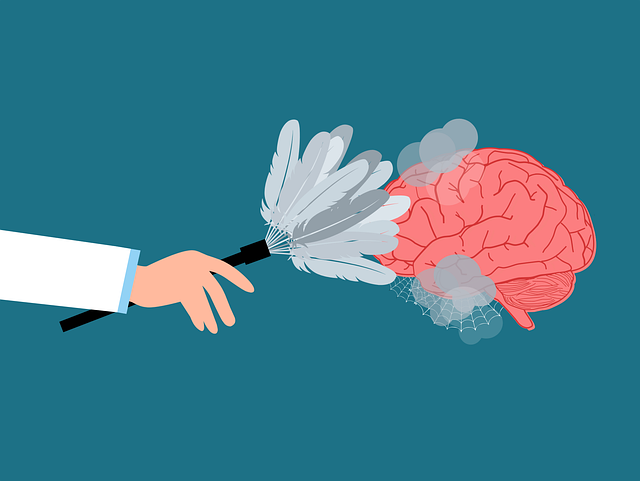Mental wellness journaling, enriched by Lone Tree Acceptance and Commitment Therapy (ACT) principles, is a transformative practice that cultivates self-acceptance, enhances mindfulness, and develops effective coping strategies for mental health challenges. By regularly documenting thoughts and experiences, individuals gain profound insights, boost confidence, and foster a positive relationship with their mind and body. This approach prioritizes acceptance and present-moment awareness, enabling personal growth, balanced perspectives, and enhanced mental wellness through consistent journaling routines.
“Unwind and embrace self-improvement through the powerful practice of mental wellness journaling. This article guides you on a journey of understanding and harnessing the therapeutic benefits of journaling, specifically exploring its synergy with Lone Tree Acceptance and Commitment Therapy (ACT).
We’ll delve into strategies for unlocking your reflective potential, fostering personal growth, and creating an effective journaling routine. By the end, you’ll be equipped to navigate life’s challenges with enhanced mindfulness.”
- Understanding Mental Wellness Journaling: Unlocking Self-Reflection and Growth
- The Role of Lone Tree Acceptance and Commitment Therapy (ACT) in Journaling Practice
- Creating an Effective Journaling Routine: Tips for Consistency and Mindful Living
Understanding Mental Wellness Journaling: Unlocking Self-Reflection and Growth

Mental wellness journaling is a powerful tool for self-reflection and personal growth, allowing individuals to explore their thoughts and emotions in a safe and non-judgmental space. It involves writing about experiences, feelings, and insights, often guided by specific prompts or questions designed to promote awareness and understanding. By documenting mental health journeys, people can gain valuable perspectives on their lives, uncover hidden patterns, and cultivate a deeper connection with themselves.
This practice draws upon principles from various therapeutic approaches, such as Lone Tree Acceptance and Commitment Therapy (ACT), which encourages individuals to accept their thoughts and emotions without judgment while committing to actions that align with their values. Through regular journaling, one can enhance mindfulness, foster self-acceptance, and develop effective coping strategies for managing stress, anxiety, and other mental health challenges. Additionally, it serves as a confidence booster, enabling individuals to track their progress, celebrate achievements, and learn from setbacks, ultimately nurturing a more positive relationship with their minds and bodies.
The Role of Lone Tree Acceptance and Commitment Therapy (ACT) in Journaling Practice

Lone Tree Acceptance and Commitment Therapy (ACT) offers a unique perspective on mental wellness journaling, emphasizing acceptance and mindfulness as core components of its practice. This therapy encourages individuals to observe their thoughts and emotions without judgment, fostering a deeper understanding of themselves. By embracing ACT principles, journaling becomes an effective tool for cultivating present-moment awareness, identifying values that guide behavior, and promoting defusion from distressing thoughts. Through this process, individuals can develop a more balanced perspective on their experiences, leading to improved mental health awareness and well-being.
Incorporating ACT into journaling routines enhances self-reflection and personal growth. It encourages individuals to make meaningful connections between their values, actions, and emotional responses. This introspective practice enables the development of empathy building strategies, as understanding one’s own mind can lead to greater compassion for others. Moreover, it supports the creation of a supportive inner dialogue, ultimately contributing to the overall development of mental wellness coaching programs.
Creating an Effective Journaling Routine: Tips for Consistency and Mindful Living

Creating an Effective Journaling Routine is a powerful tool for cultivating mental wellness and personal growth. Consistency is key; setting aside dedicated time each day or week can transform journaling into a mindful practice. Start by choosing a quiet moment when your mind is calm, perhaps near the beginning of the day to set a positive tone or before bed to reflect on the day’s experiences. Make it a ritual—the same time and place each day can foster a sense of comfort and anticipation.
Incorporate diverse techniques to keep your routine engaging. Consider using Lone Tree Acceptance and Commitment Therapy (ACT) principles, such as identifying values that guide your writing, practicing mindfulness by observing thoughts without judgment, and embracing acceptance to let go of negative self-talk. Integrate self-care practices by reflecting on what brings you joy or gratitude. Even a brief mindfulness meditation before journaling can enhance focus and connection with your inner self. Remember, the goal is not perfection but consistent reflection, fostering a deeper understanding of yourself and nurturing your mental wellness.
Mental wellness journaling is a powerful tool that combines self-reflection and growth, enhanced by practices from Lone Tree Acceptance and Commitment Therapy (ACT). By creating an effective journaling routine, individuals can cultivate consistency and mindfulness in their daily lives. Through these exercises, they gain deeper insights into their thoughts and emotions, leading to improved mental health and overall well-being. Embrace this transformative practice today and unlock your journey towards a more balanced and fulfilling life.














